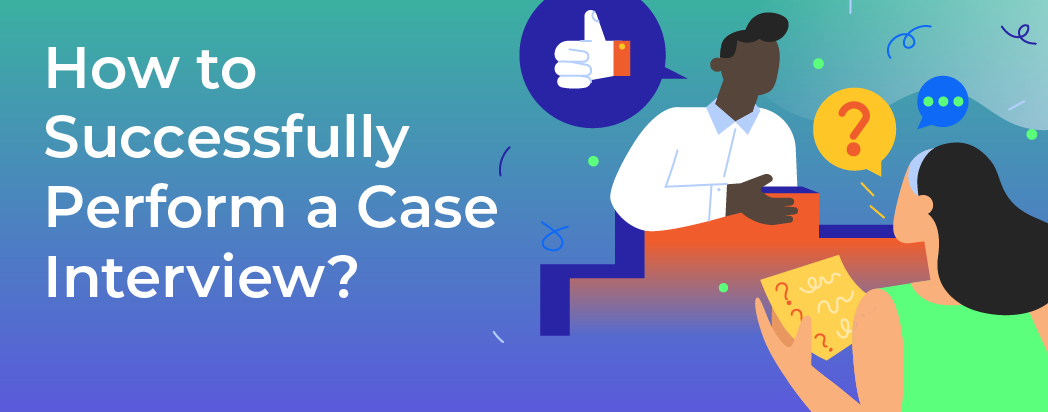
What you will learn:
In a case interview your case interview performance determines 80%+ (maybe 90%+) of the interviewer’s decision so your performance is incredibly important to your success. Learn the skills you need and resources to help you improve your performance skills so you can ace the case.
Topics Covered:
Case Interview Guide – How to Successfully Perform a Case Interview Becoming More Efficient and Quantitative in Case Interviews
Sometimes, you may get all of the answers right in a case interview but still be rejected. One reason why this may happen is that you’re “too slow” in solving the case.
Being “too slow” does not mean you need to talk faster. It means you are asking too many questions to figure out a conclusion for one part of the case.
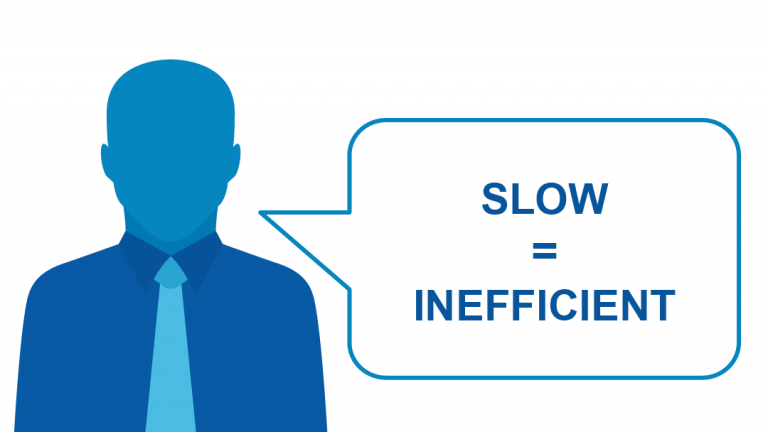
Stated different, the real problem is that you’re asking the wrong questions — in particular, your questions are not specific enough.
This is a very common problem. In my Look Over My Shoulder® program, the candidate who did Case #2, Example #1 is a perfect example of the problem you’re having.
He got the right answer, and I still “dinged” him.
How you get the answer is as important as if you get the answer.
Let me give you an example of the difference in how a “slow” candidate asks questions vs. a “fast” one.
Slow Candidate:
1) Slow Candidate (SC): I know profits are down $20 million, do we know if sales have declined?
2) Interviewer (I): Yes, we know sales are down $10 million.
3) SC: I see, next I want to analyze costs. Do we know if costs have changed?
4) I: Yes, costs have gone up.
5) SC: How much have costs gone up by?
6) I: Costs have gone up by $10 million.
7) SC: Do we have a breakdown of which costs have gone up?
8) I: Labor costs have gone up by $3.33 million, all other costs are unchanged.
9) SC: Do we know what portion of total costs is represented by labor?
10) I: 1/3 of total costs comes from labor.
11) SC: Do we know how our competitors’ costs have changed?
12) I: Competitors’ costs have changed by identical dollar amounts.
13) SC: I see, so this is an industry-wide cost problem. Do we know if profits for our competitors have changed?
14) I: Yes, profits are also down by $20 million.
15) SC: Do we know if sales have changed?
16) I: Yes, sales for competitors are down $10 million.
17) SC: I see, it looks like industry-wide profitability is being driven by a decline in sales volume and an increase in labor costs. The question is, what should the client do given these two factors? What I want to do next is…
(Okay, notice that it took 17 lines of back and forth to get to this point. See how the “fast” candidate does it.)
Fast Candidate:
1) Fast Candidate (FC): I know profits are down $20 million, do we know if sales have declined?
2) Interviewer (I): Yes, we know sales are down $10 million.
3) FC: I see, that means costs are up $10 million, do we have a breakdown as to which costs have increased?
4) I: Labor costs are up $3.33 million, all other costs remain unchanged.
(In the candidate’s head she figures out… if the labor costs are up $3.33 million, and overall costs are up $10 million, we know labor is 1/3 of total costs… got it, remember that, no need to ask the question.)
5) FC: Next question, have labor costs for our competitors changed?
6) I: They have changed by the same amount.
7) FC: My hypothesis is this is an industry-wide problem impacting industry-wide profits. Do we know if competitors’ profits are down more, less, or the same as our client?
8) I: Competitor profits are also down $20 million.
(In the candidate’s head, she says to herself… competitor profits are down $20 million, their costs are up $10 million, so it must mean mathematically that sales for competitors are also down $10 million. Got it. No need to ask the question.)
9) FC: I see, so mathematically we know sales for all players in the industry are down $10 million, with labor costs helping to drive up total costs by $10 million, reducing profits for the industry overall — including our client.So, the question we’re really trying to address is what should our client do, given these two pressures on the industry. To answer that question, I’d like to…
Notice the line count comparison: The “fast” candidate uses only 9 lines of questioning vs. the “slow” candidate who uses 17 lines.
Notice how the “slow” candidate asks a lot of redundant questions. If profits are down $20 million, and sales are down $10 million, we already know that costs must be up $10 million. Since this is a mathematical certainty, it’s a waste of time to ask about it.
The “slow” candidate tends to not realize the mathematical relationship or is not fast enough at math to do the calculation in the middle of an interview under some pressure, and to then quickly interpret what that means for the case.
Asking the Right Questions
Becoming more efficient is all about asking the right questions.
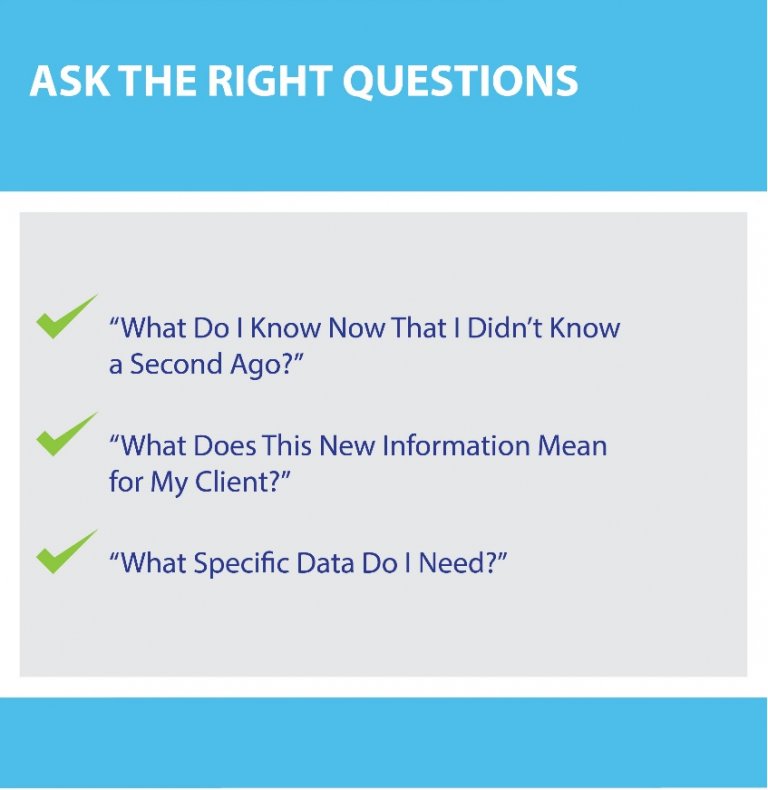
Here are some tips to help you become a “faster” candidate:
Cut Out Unnecessary Questions
One easy way to get faster is to repeatedly ask yourself, “What do I know now that I didn’t a second ago?” By focusing in this way, you will eliminate redundant questions that you can already find the answer for with simple math.
Focus on Insights, Not Processes
When you do a case live, you have to really think. It takes a lot of energy. The problem with those who are less prepared is that they put their energy into thinking, “What’s the next step I’m supposed to do in the case from a process standpoint?”
Those who are prepared automatically know what’s next from a process standpoint in the case, and they can devote their energy to truly analyzing the implications and insights in the case. They can spend more time thinking, “What does this new information mean for my client?”
They don’t waste their “think” time on the mechanics of asking for a particular kind of data in a particular way and sequence.
Ask Quantitative Questions
As a management consultant, you need to quantify everything to determine what information matters. You need to be able to judge when you need to ask for a specific number and when you only need a general idea of the numbers.
A “fast” candidate will be able to recognize the difference and avoid asking for overly specific numbers when it’s not necessary to draw the conclusion.
Let’s compare a quantitative and non-quantitative lines of questioning.
A non-quantitative candidate will do the following:
1) Candidate: Have sales for the client decreased?
2) Interviewer: Yes.
3) Candidate: I see, have costs changed?
4) Interviewer: Yes, they have gone up.
A quantitatively oriented candidate would ask the questions slightly differently:
1) Candidate: Have sales for the client decreased?
2) Interviewer: Yes.
3) Candidate: By how much?
4) Interviewer: Sales have declined by $10 million.
5) Candidate: I see, have costs changed?
6) Interviewer: Yes, they have gone up.
7) Candidate: By how much?
8) Interviewer: They are down by $10 million.
In consulting, we don’t have the luxury of infinite time and people to analyze everything. We have to take shortcuts by only getting data that’s necessary to answer the question at hand. We have to be able to zero in on the information we need and ask for it through focused, quantitative questioning.
The example at the start of this section was an example of a candidate being “slow” quantitatively. But, it is also quite common for candidates to be “slow” in analyzing qualitative data. In my Look Over my Shoulder®, there were lots of examples of this common mistake too.
Preparing Differently
Typically, when you prepare for a case interview, your plan is:
- Practice every day with my friends.
- Read publications done by the firm and the specific office that I am interviewing with.
- Read WSJ and business news.
- Go through the Look Over my Shoulder® program
If you’re trying to focus on building your efficiency, forget about #2 and #3. The most useful preparation items will be practicing cases with friends and truly studying the Look Over my Shoulder® program.
The purpose of LOMS is to take people who know what to do and improve their skills… especially under pressure. The key is to be hyperaware of process mistakes that lead you into an incorrect conclusion or “no conclusion” problem.
When you are automatically aware of those process mistakes, you save yourself time by avoiding them before they lead you into the conclusion.
This is the other way to “speed up” processing time. Don’t waste time thinking about process steps that should just be habitual and routine. This takes practice.
So, my recommendation is not to just read the Look Over My Shoulder® transcripts or listen to them, but rather to actively engage in the material in some way.
Reading the transcripts with a pen to take down notes and observations. Rewrite the transcripts to be more efficient. If you’re just passively listening, you’re not using the program to its highest potential.
You also want to practice cases with your friends to get used to using these new habits under the pressure in a more interactive environment. In particular, you will want your friend to constantly interrupt your train of thought by asking you questions about your responses.
Many candidates get a little caught off guard by this, so this is good to practice live when you have the opportunity. But, if you’ve practiced enough so that the process of the case comes to you automatically, you can think about an appropriate answer without losing where you are in the case.
How to Convey Confidence in a Case Interview
When it comes to case interview preparation, you can practice for hours and be as prepared as possible — but and this is very important you must also be prepared to remain calm and project confidence during the interview.
Consulting firms specifically look for candidates who demonstrate confidence during the case interview. I want to explain why consulting firms value confidence so much. Ultimately it comes down to the business of a consulting firm and working successfully with clients.
The client’s psychological motivation for hiring a consulting firm is to reduce the anxiety associated with a lack of clarity around a business decision. They are looking to a consultant for confidence, reassurance, and clarity in the decision-making process as they choose a course of action. The client is not just buying the business analysis but also the confidence and reassurance about a particular course of action.
This is why, interviewers, especially those in firms where new consultants will have client contact, assess a candidate’s confidence level, it is to ensure that clients won’t doubt the consulting teams’ recommendations.
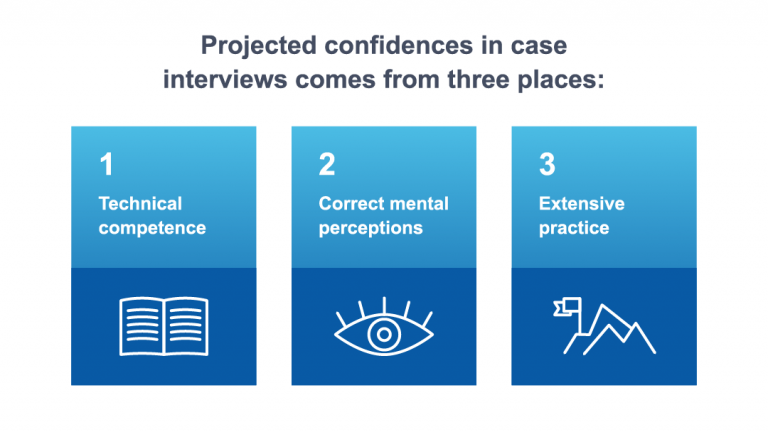
Projected confidences in case interviews comes from three places:
Technical competence
Correct mental perceptions
Extensive practice
Technical Competence
If you want to appear confident in a case interview, you need to develop exceptionally strong case interview skills, it is not enough to be only somewhat familiar with what is expected – you need to completely master those skills. Devote yourself to being very good at cases and you will automatically find your confidence building as part of the process.
Correct Mental Perceptions
How you perceive the interview is very important with respect to your confidence.
If you see it as a trial by jury where your entire life and future career is at stake, this is not a very productive way to think about it.
A better way to look at the case interview is as a chance to meet a super smart person, and work together on an intriguing business problem… while taking the lead a bit.
In hindsight, this was exactly how I thought of my case interviews.
I know this will be just a shock to some people, but I actually looked forward to my case interviews.
Why?
Because, I’m 1) very curious, and 2) like to learn new things about business.
Once I got into the case, I was just so curious to get data, test my hypothesis to see if I was right… I found the whole discovery process very intriguing, much like being a detective on a TV show. I quickly forgot that the person in front of me was evaluating me, in my mind the interviewer was just my analyst — someone who had the data that I needed to satisfy my curiosity.
I figured worse case, I would go to a case interview and learn something new about business that I didn’t know the day before. A productive way to spend a day….
And oh yeah, there is the evaluation form the person across the table will end up filling out, but forget about that… tell me more about this really interesting case.
And what I discovered through the many case interviews that I had was that I was learning a lot about business at a very fast rate — just through the interviews.
And guess what?
This is exactly what happens on the job after you get the offer too.
For example, I spent the day learning about Alzheimers and dementia, as I have a new client that is in that market. It is just fascinating the psychological factors that influence clients with dementia and their families.
I mean, how do you sell a service to a client who is in denial about the problem they face? How do you sell a service to a family member who is equally in denial about the problem they face? Very interesting… never had to deal with such a challenge before.
The takeaway here is to mentally perceive the interview as something other than an evaluative process.
Extensive Practice
The last area that will help you in remaining confident in a case interview is extensive practice. Conveying confidence in a case interview requires extensive practice to prove that you can convey technical competence under the extreme pressure of a live interview.
Based on the hundreds of success stories and thank you notes I receive from CaseInterview.com students I estimate that 90% that receive the offer spent 50 to 100 hours practicing for the interview.
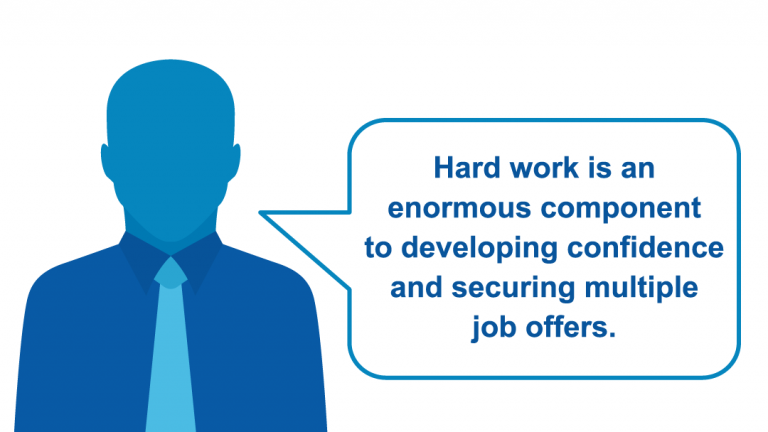
I want to move on to one last big idea to remember about confidence in the case interview.
It may seem absurdly simple to the point of not taking it seriously. And if you do dismiss this next suggestion because it seems to simple, I guarantee you take a very big risk by doing so.
What is this big idea?
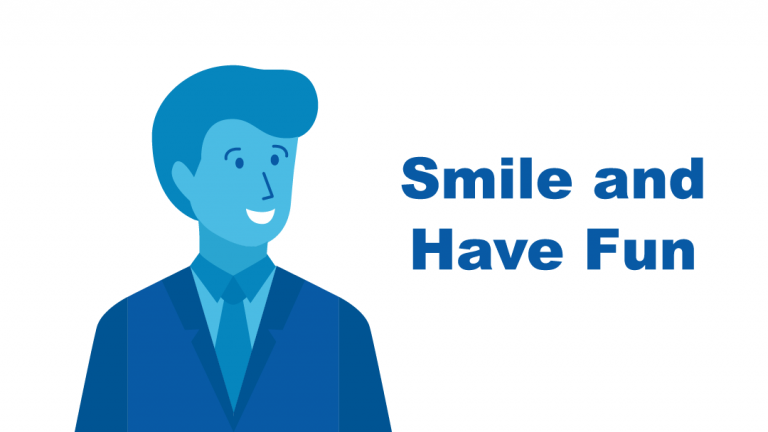
Yup, that’s it. Smile and Have Fun.
Smiling/Laughing/Having Fun is completely incompatible with nervousness. It is humanly not possible to be Smiling/Laughing/Having Genuine Fun and come across as nervous at the same time.
If you just remember this one thing, all the other physical activities to show confidence automatically happen without your trying. Your eye contact automatically improves.
Your pace of speech automatically slows down to a normal speed (not a rushed nervous speed). Your voice inflection automatically moves to a more natural varied one, rather than monotone. Your body language will automatically open up and be wider, rather than narrow and uptight.
There are a dozen little things that convey nervousness, but all of that goes away automatically if you just focus on having fun during your interview.
The other idea here is you get back the demeanor you give to the interviewer. If your face looks like you’re constipated, you will get back a similar look from the interviewer.
By the way, that last sentence is known as a “pattern interrupt.” Next time you see an interviewer who gives you such a look, remember what I said, hopefully laugh a little to yourself, smile and perhaps the interviewer might just do the same.
On a related note, it is odd for an interviewer to be the only one smiling. If you smile, she smiles. If you are miserable, it just feels awkward for the interviewer to be smiling as it sometimes feels like you’re smiling at their misery.
Don’t focus on trying too hard to do well. Don’t think about the consequences of doing well or not. Trust that you are well trained and that you will do what you have been trained to do, then the only thing left to focus on is to just….
SMILE and HAVE FUN
More Resources on How to Develop Confidence
Self Confidence vs Self-Esteem
How to Project Confidence in a Case Interview
Learn from Your “Failures”
In the competitive field of consulting, you’re bound to come across challenges during the job application process. In particular, many candidates tend to struggle with case interviews because they require preparation, practice, and a specific skill set.
If you’ve failed a case interview, you may feel discouraged or frustrated. You may have even experienced a decrease in your confidence. However, it’s important for you to know that every failure is a learning opportunity. Failure is not the opposite of success — it is the pathway through which people succeed.
Being successful is all about having the right mindset. By learning from your mistakes, you can turn your shortcomings into strengths and become a more competitive candidate for top consulting firms.
Understanding Failures and Challenges in Your Career
Failing is part of life. When you set ambitious goals, you’re likely to struggle when you try to achieve them. Rejection, defeat, and challenges are all bound to happen, and you should avoid falling into the trap of feeling discouraged.
Steve Jobs once said, “You can’t connect the dots looking forward; you can only connect them looking backwards. So you have to trust that the dots will somehow connect in your future.”
Your focus should be to understand that failure does happen and that you should maintain a positive mindset whenever you come across various challenges.
Remember that it’s all about embracing and understanding why you failed. Failure should motivate you to aim high and work hard toward achieving your goals.
Why It’s Important to Learn from Your Failures
Whether you failed to pass a case interview or you weren’t accepted into your consulting firm of choice, use your challenges to fuel your comeback. Case interviews are designed to test your ability to solve problems within the consulting field.
If you previously failed a case interview, it doesn’t necessarily mean that you don’t have what it takes to become a successful consultant. In fact, many unsuccessful candidates are smart, highly talented, and hardworking individuals.
Succeeding during case interviews will depend on your overall performance. Performance is determined by two main factors:
- Ability
- Preparation

Many applicants who make it to the 2nd or 3rd round of the interview process demonstrate a raw ability to be successful in consulting. If they fail, it is likely that they just need more preparation.
If you waited to secure an interview before you started preparing, then you probably didn’t have enough time to practice. That doesn’t mean that it’s time to throw in the towel. It means that it’s time to adjust how you prepare. You may be more successful if you focus more on preparation.
Try to look at your failures in a positive light and to turn them into learning opportunities.
Turning Failure into Success During Case Interviews
A previous failure during the case interview process may cause you to question whether you have what it takes. But, remember that it’s not how we handle success that defines us, but how we handle failure. You can take your past struggles with the case interview and turn them into a much better performance.
How?
Understand what unique gifts you possess, be humble enough to learn from your mistakes, and be courageous enough to try again.
Move your focus from a “Success vs. Failure” approach to a “Success vs. Non-Success” approach. Non-success means that something didn’t work out how you expected it to, but if you make some adjustments, you can get better results down the road.
Even before you begin preparing for a case interview, it’s important to be confident in your abilities. Remember that consultants sell confidence. Therefore, you need to have that “verve” that shows the interviewer the broad skill set that you possess.
Finally, don’t be afraid to adjust your goals. If you feel that you were adequately prepared but still find yourself struggling to enter the top consulting firms, consider expanding your outreach. Firms like Accenture, Deloitte, Monitor, and Oliver Wyman are great options. They are a bit less competitive in terms of recruiting, but they still provide valuable career paths for applicants. Flexibility is key to learning from your failures.
Mistakes to Avoid
The case interview is designed to test candidates in a high-stress environment to see how well they can perform. Successful consultants are not only knowledgeable of the issue at hand, but they’re also capable of discerning the best possible approach when solving problems.
Therefore, each case interview tests both your knowledge of the material and your habits of applying this knowledge.
The unique demands of a case interview can throw off applicants during the interview process. In fact, there are several common mistakes that interviewees make when solving cases. To train yourself out of these habits, it takes practice and focus.
Here are five of the most common mistakes that candidates make during case interviews and how to avoid them.
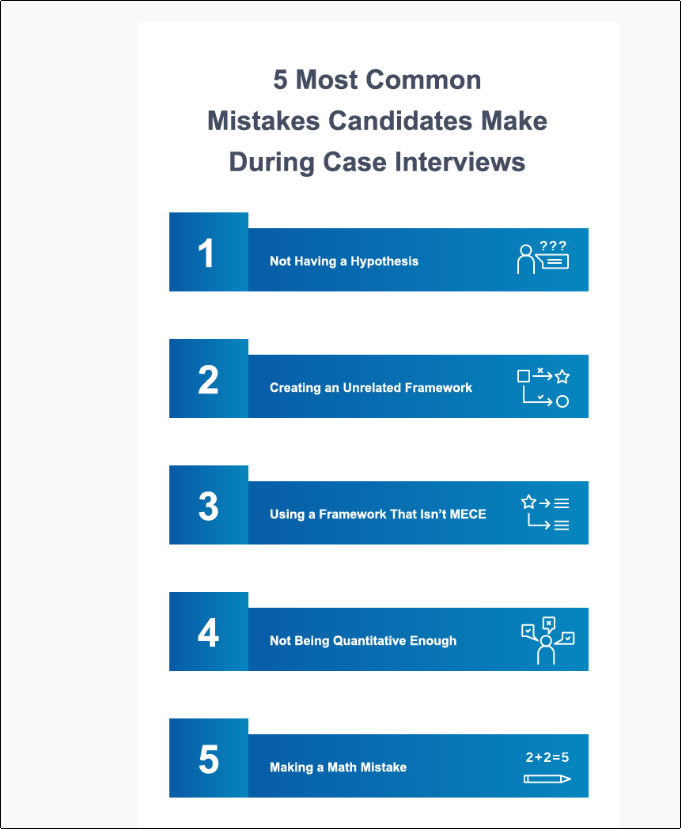
1. Not Having a Hypothesis
Similar to how scientists use a hypothesis as the central piece of their research, consultants use a hypothesis as the foundation on which to start problem-solving. Simply put, you need a strongly defined hypothesis when presented with a case.
The idea of a hypothesis is to either prove or disprove it with the information and approach that you use. Therefore, every question that you ask, bit of data that you seek, or approach that you explore should directly tie back to your original hypothesis.
2. Creating an Unrelated Framework
Even if you know that you need a strongly defined hypothesis, you may end up making the mistake of creating a poorly linked framework.
What does this mean?
Every element of your framework should be clearly and absolutely tied to the hypothesis. Each question you ask should also have a direct impact on either proving or disproving it.
For example, if your hypothesis states that the customers of a particular business are insensitive to price increases, then a strongly linked framework should segment the customer base to assess sensitivity levels within smaller groups.
This is a more positively linked approach than, say, assessing the competition from other businesses, which may not be directly linked to price sensitivity in this particular case.
3. Using a Framework That Isn’t MECE
When solving problems, one of the most important traits of your framework is that it needs to be MECE (mutually exclusive and collectively exhaustive). Each factor that you test within a particular case should not overlap with any other factors, but the collective factors should cover all possible outcomes.
If you test issues or elements that frequently overlap (not being mutually exclusive), the interviewer will view your problem-solving approach as confusing or inefficient.
Similarly, missing a key factor (not being collectively exhaustive) during your analysis is a big problem. You might miss the deciding element that influences the outcome of a case.
You can avoid this problem by thinking in “categories” of topics, instead of just thinking in topics. Proper categorization is key to being MECE.
4. Not Being Quantitative Enough
In consulting, you often need to prioritize during the problem-solving process. Many candidates with analytical backgrounds tend to analyze too many factors at once, thus lacking the precision that’s required for problem-solving.
For example, if profits are down due to low sales and high costs, it can be easy to assume that both factors are to blame for low profits.
However, you need a more precise approach that analyzes the factor that is contributing more to decreased profits. Then, you can focus on that issue first.
Proper quantification is will help you identify key insights so that you can address the most relevant issues chronologically.
5. Making a Math Mistake
Clients don’t pay high fees for their consultants to make a math mistake. Computational accuracy is closely tested during case interviews, and a blatant math error often results in an automatic rejection (especially with top firms).
To avoid this critical mistake, it’s better to do your math slowly and accurately than quickly and inaccurately. Our case interview resources will help you practice and avoid out these critical mistakes.
Tips and Resources to Improve Your Case Interview Performance
Before Your Case Interview
How to Dress for Your Case Interview
How to Prepare for Your Case Interview
Case Interview Flow
Case Interview Opening
During Your Case Interview
Case Interview Closing
General Case Interview Performance Tips and FAQ’s
Answers to Common Case Interview Performance Questions
Case Interview Performance Tips
Specific Case Interview Performance Skills
Identifying Key Drivers in a Case
When and How to Be Creative in a Case
How to Convey Leadership Skills
Demonstrating Insight in a Case Interview
When and How to Summarize the Case Question
How Not to Show Nervousness in a Case Interview
Case Interview Presentation Skills
How Not to Get Stuck on a Case
Should You Use Humor in a Case Interview
Additional Resources
If you found this post useful, I suggest becoming a registered member (it’s free) to get access to the materials I used to pass 60 out of 61 case interviews, land 7 job offers, and end up working at McKinsey.
Members get access to 6 hours of video tutorials on case interviews, the actual frameworks I used to pass my interviews, and over 500 articles on case interviews.
More Topics :

How to Get an Interview
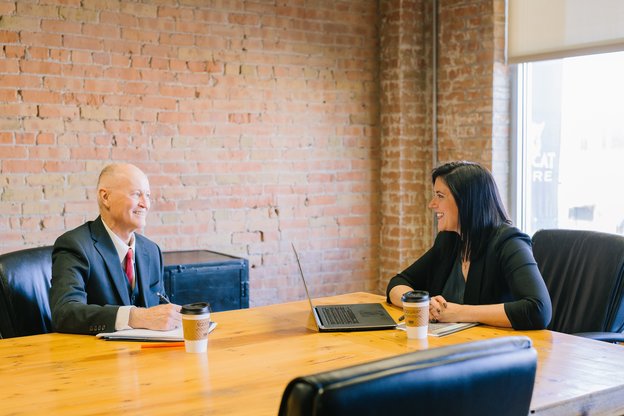
What Interviewers Look For

Case Interview Prep Resources
